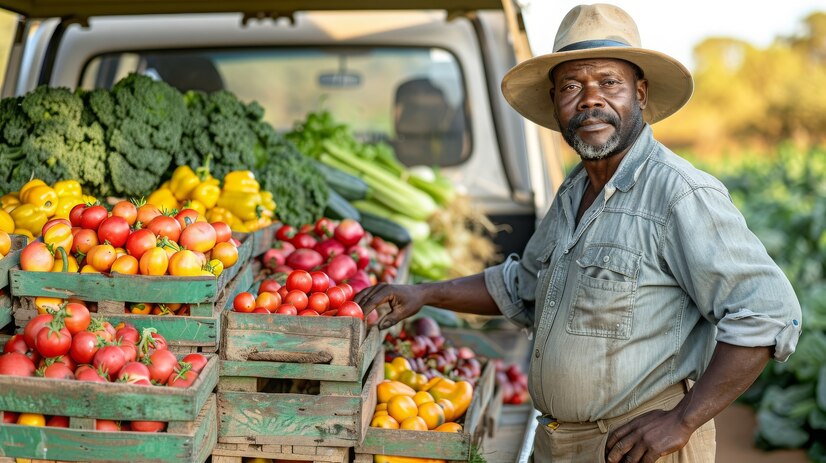Abstract :
With an increasing population and demand for fresh produce in Nigeria, starting a vegetable farming business will be a very positive venture. With fertile land and favorable climate conditions in Nigeria, plus a very good government policy on agriculture, the country presents more than enough opportunities for vegetable farmers. The following is an outline of the most important steps in beginning a vegetable farming business in Nigeria, in 2024.
- Research the Market:
Before venturing into vegetable farming, market research is very important. You must consider the most demanded type of vegetables in the area where you intend to sell your produce. The commonest of vegetables associated with a lot of demands in Nigeria are tomatoes, peppers, lettuce, spinach, and cucumbers. Go a notch higher, understand the consumer preferences, the peak seasons, and the market prices to have a hang of things.
The right location is the key for success of a vegetable farm. Look for land with appropriate soil fertility, availability of water, and closeness to a market. If these three factors are present, then look for good access to proper transportation networks in order for the products to actually move to the market centers.
What Will Be Required
Financial projections and budget
Marketing and sales strategies - Raise Enough Capital:
The establishment of a vegetable farming business is not a zero capital venture; you will need some capital to be invested in land procurement, seeds procurement, equipment purchase, hiring of labor. The various sources of raising capital would include personal savings, bank overdraft, agricultural grants, and governmental support for farmers in Nigeria.
- Land Preparation
Land preparation time is one of the most essential issues in the vegetable sector. Make the landarea free from weeds and other such useless materials. Plow the landsector properly and apply organic matter and/or fertilizers to enhance the soilfertility. Set up irrigation management for proper water supply and elimination of cropstress, mainly in the seasons of low water application. - Selection of Quality Seeds:
Choose high-quality seeds from reputable suppliers to have a surety of high germination rates, hence healthy crop growth. Consider adopting the use of hybrid or improved varieties which are resistant to pests and diseases and have high yield potentials. - Good Agricultural Practices:
Adopt good agricultural practices (GAP) in growing vegetables as this will promote the best potential of vegetables in getting utilized. They include:
Proper planting techniques: Plant following the recommended distances and depths.
Control pests and diseases through integrated pest management of the different pests and diseases.
Irrigation Management: There is a need for proper and timely watering of the crops.
Fertilization: The correct type and quantity of fertilizers needed should be applied to the crop for better growth of the plants.
- Harvesting and Post-Harvest Handling:
Harvest your product in good time to avoid losses through rotting and wilting. After harvesting, package and handle your produce properly to reduce damage in post-harvest activities. Finally, practice good sorting, grading, and proper packaging through proper post-harvest handling. - Marketing and Sales:
Generate sufficient marketing strategies for the sale of your vegetables. Utilize the various selling points such as the local markets, supermarkets, inter restaurants, and over the internet. The key to having market for your produce in all times is maintaining good relationships with your buyers and giving them competitive rates . - Keep Trending:
Agriculture is a dynamic field, as new technologies and practices undergo changes and innovativeness. Keep up-to-date towards the hottest trends and advances in vegetable farming. The best you learn will be attending agricultural workshops, seminars, and training programs to continually increase your knowledge and skills.
Conclusions:
Engaging in farming for vegetables in Nigeria, 2024, is a highly rewarding adventure, but it demands planning, commitment, and learning without end. By following this process and the resources available, one can find themselves with a vegetable farming business that has addressed the developing hunger for fresh produce in Nigeria. Embrace sustainable practices and innovative techniques that will ensure long-term profitability, as well as a contribution to the country’s agricultural growth.
Call to Action:
“Are you ready to take up this vegetable farming adventure in Nigeria? Carry out the best research and develop a nice business plan. Seek assiduously the various local agricultural agencies and remain committed to sustaining farming for a thriving vegetable business.”.

